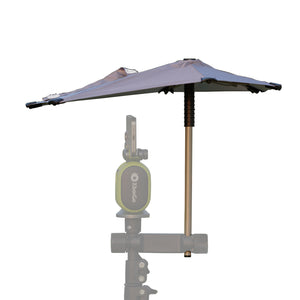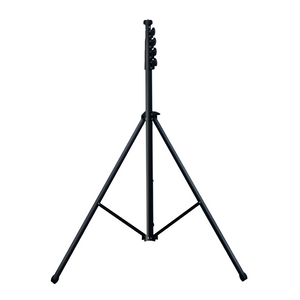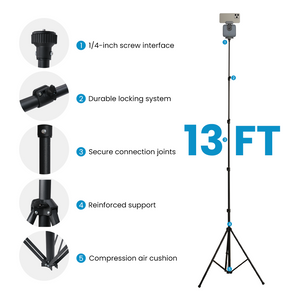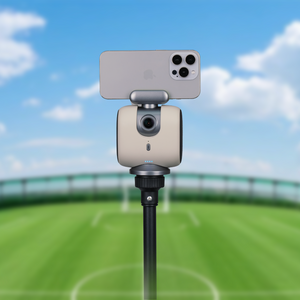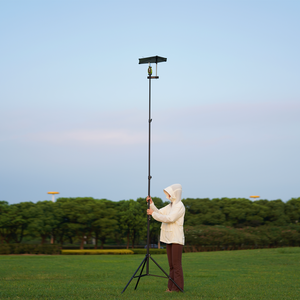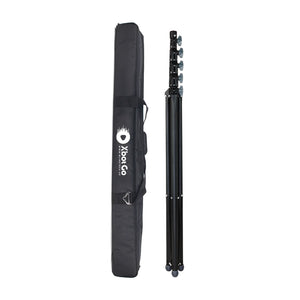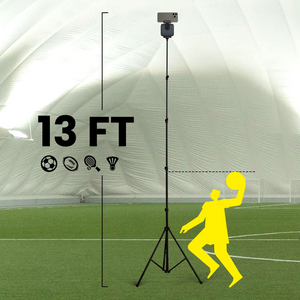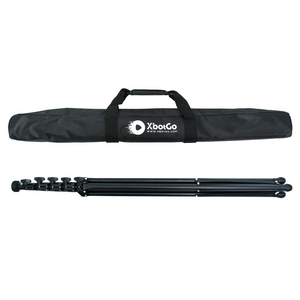XbotGo Chameleon AI Sports Camera
10 Best Soccer Jersey Numbers Explained
In the 92nd minute of Argentina's 2022 World Cup final, Lionel Messi stood over the ball, his iconic number 10 jersey soaked with sweat and history. The moment crystallized why certain soccer numbers transcend mere identification to become symbols of greatness.
This comprehensive guide explores soccer's most prestigious numbers, from the untouchable 1, 7, and 10 to the surprising significance of modern squad numbers. We'll uncover why some numbers command instant respect, how cultural differences shape number meanings, and what drives players to choose the digits that define their careers.
Number 1: The Guardian's Crown
The number 1 jersey belongs exclusively to goalkeepers—a tradition so sacred that breaking it feels fundamentally wrong. From Gianluigi Buffon to Manuel Neuer, this number symbolizes the last line of defense.
Young keepers dream of earning this jersey, seeing it as validation of their commitment to protecting the goal. The number 1 transforms players from those who occasionally play in goal to true goalkeepers, carrying the unique pressure and responsibility of the position.
Number 7: Where Magic Meets the Wing
Number 7 belongs to soccer's magicians—players who dazzle down the flanks with pace and skill. Manchester United's legendary 7s include George Best, Eric Cantona, David Beckham, and Cristiano Ronaldo.
Beyond Old Trafford, Luis Figo, Raúl González, and Son Heung-min have made this number synonymous with game-changing ability. The number 7 represents flair, creativity, and the power to leave defenders dizzy and crowds mesmerized.
Number 10: The Throne of Kings
No number carries more weight than 10. It's a legacy inherited from Pelé, Maradona, and Zidane. Players wearing 10 accept the burden of being their team's creative heartbeat.
From Ronaldinho's joy to Messi's genius, the number 10 represents playmaking excellence. Young talents often refuse this number until they feel worthy—understanding that wearing 10 means carrying the expectations of greatness and the responsibility to create magic when teams need it most.
Number 9: The Goal Machine
Number 9 is soccer's purest goal-scoring jersey. From Ronaldo Nazário to Robert Lewandowski, from Alan Shearer to Karim Benzema, this number represents the penalty box predator.
Unlike the creative burden of number 10, the number 9's mission is beautifully simple: score goals. When Erling Haaland chose 9 at Manchester City, he embraced this legacy and shattered Premier League scoring records, proving the enduring power of soccer's most direct number.
Number 8: The Box-to-Box Engine
Number 8 represents soccer's most complete players—those who defend, create, and score with equal excellence. Frank Lampard, Steven Gerrard, and Andrés Iniesta embodied this versatility.
The number 8 must read the game like a defender, pass like a playmaker, and arrive in the box like a striker. It's soccer's most physically demanding number, requiring players to influence every aspect of the game while covering every blade of grass.
Number 11: The Flying Winger
Number 11 traditionally belongs to the left winger, though modern players have redefined its meaning. Ryan Giggs terrorized defenses for two decades wearing Manchester United's 11. Didier Drogba made it a striker's number at Chelsea. Mohamed Salah wears it at Liverpool, cutting inside to score with devastating regularity.
The number represents unpredictability—players equally comfortable hugging the touchline or driving into the heart of defenses.
Number 5: The Defensive Anchor
Number 5 belongs to defensive leaders who anchor their teams. Carles Puyol epitomized the warrior spirit wearing Barcelona's 5, while Fabio Cannavaro showed how technical brilliance could define the number.
In midfield, Sergio Busquets redefined it as the deep-lying playmaker position. Whether in defense or midfield, number 5 attracts players who understand that controlling space and reading the game matter as much as winning tackles.
Number 4: The Defensive Brain
Number 4 represents tactical intelligence and defensive leadership. Franz Beckenbauer revolutionized it by inventing the libero role, proving defenders could be playmakers. Patrick Vieira dominated midfields wearing 4, while Cesc Fàbregas showed its creative potential.
The number appeals to thinking players who influence games through positioning and vision rather than pure physicality—natural leaders who see the game from a different perspective.
Number 23: The Jordan Tribute
Number 23 gained global popularity when David Beckham chose it at Real Madrid, honoring basketball legend Michael Jordan. This cross-sport tribute resonated worldwide, making 23 a statement number for players with global ambitions.
The number represents breaking traditional soccer boundaries and appeals to players who see themselves as transcending the sport. It's become the go-to choice for stars wanting to stand out while paying homage to greatness.
Number 14: The Rebel's Choice
Number 14 became soccer's first iconic squad number through Johan Cruyff's accidental selection—he randomly grabbed it before an Ajax match and kept it after victory.
Thierry Henry honored Cruyff by wearing 14 at Arsenal, adding his own legendary chapter. The number now symbolizes players who forge their own path, unconcerned with traditional hierarchies. It represents innovation, individuality, and the courage to challenge soccer's established order.
Conclusion
Soccer's jersey numbers tell stories that transcend statistics and tactics. From the sacred 1, 7, and 10 to personal significance of modern squad numbers, each digit carries weight beyond its numerical value.
Whether you're choosing your first number or studying the traditions behind your favorite player's choice, remember that every number tells a story. The best soccer number is the one that makes you play with confidence, pride, and joy—because soccer's true magic happens when players create their own stories, one number at a time.
XbotGo Chameleon AI Sports Camera
Capture every moment with AI-powered tracking. Perfect for coaches, parents, and athletes who want seamless footage without manual filming.








 Soccer
Soccer Basketball
Basketball Ice Hockey
Ice Hockey Football
Football










